Interview: Steve Vai talks about his solo studio recordings
"Did I ever envision this kind of journey? Yes… and no."
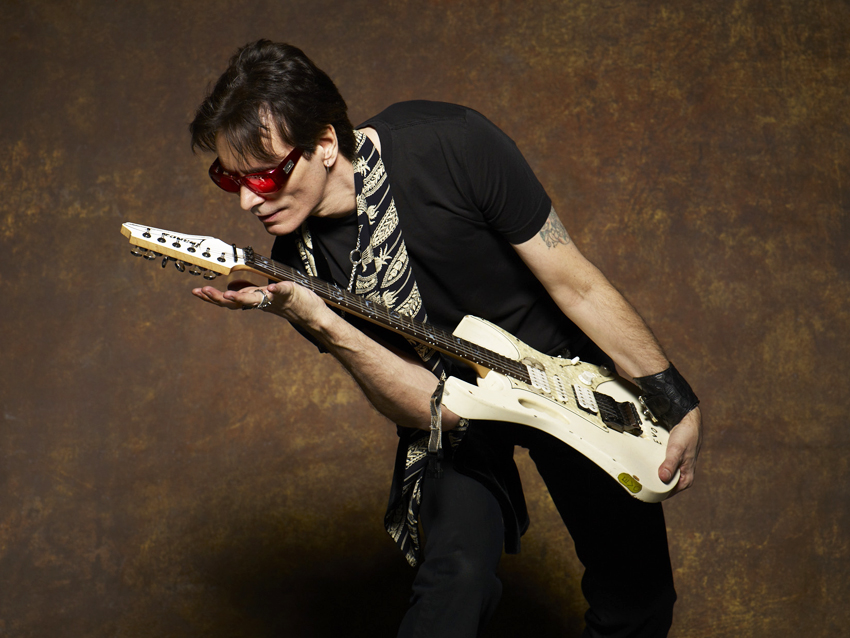
Interview: Steve Vai talks about his solo studio recordings
“Did I ever envision this kind of journey? It’s a good question.
“I knew that I was going to have a life as a musician, because I always felt the pull. I don’t remember ever having to make a choice. There was never a point where I said, ‘OK, I can either be a musician or I’ll do… this.’ Because, really, if I was in a position to make a choice, that would’ve meant there was an option – and there wasn’t.
“I loved the guitar, and I had all of this music in my head. My passion for the guitar and the ideas for what I could create musically were equal. So that’s where I was.
“I didn’t have any aspirations of becoming famous or successful; in fact I was scared to death of all that. I remember somebody once said that if a rock musician goes on tour, he goes insane. I was very impressionable and I carried this useless weight of fear around with me about going on tour, all because of this thing somebody said.
“It was strange: I knew I wanted to do this, but I didn’t know what it entailed. It took me a long time to get hold of that. There was a pinnacle moment when I was on tour with Frank [Zappa], and I was confronted with this fear. At the same time, I loved making music so much, and I was making it for myself, really.
“If I had to point to a particular frame of mind that perpetuated itself, I remember when I was young I would listen to music in my sister’s room when she wasn’t around. I’d put the headphones on and listen to Led Zeppelin and Hendrix and that kind of stuff, and I’d imagine myself performing. It was like meditation. I could see it. I created this picture of this character who would play the guitar effortlessly, who had no limitations, performing beautiful music, and he moved around with great acrobatic skills, just capturing the audience and being a great entertainer. He wielded the guitar like it was a magic sword, being completely confident.
“It’s totally OK to dream that kind of stuff. In your own mind, no matter how insecure you are, whatever your circumstances are, you always have the ability to go into your imagination. I know that sounds cliché, but if you talk to scientists and spiritual leaders, they’ll tell you that you create who you are by how you think.
“I came to understand that as one of the most fundamental truths of reality. I saw myself becoming the person I was imagining in my own head. So to answer the question, ‘Did I ever envision this kind of journey?’ Yes… and no.”
On the eve of his new release, The Story Of Light (due out 14 August), Steve Vai discusses his solo studio recordings on the following pages.
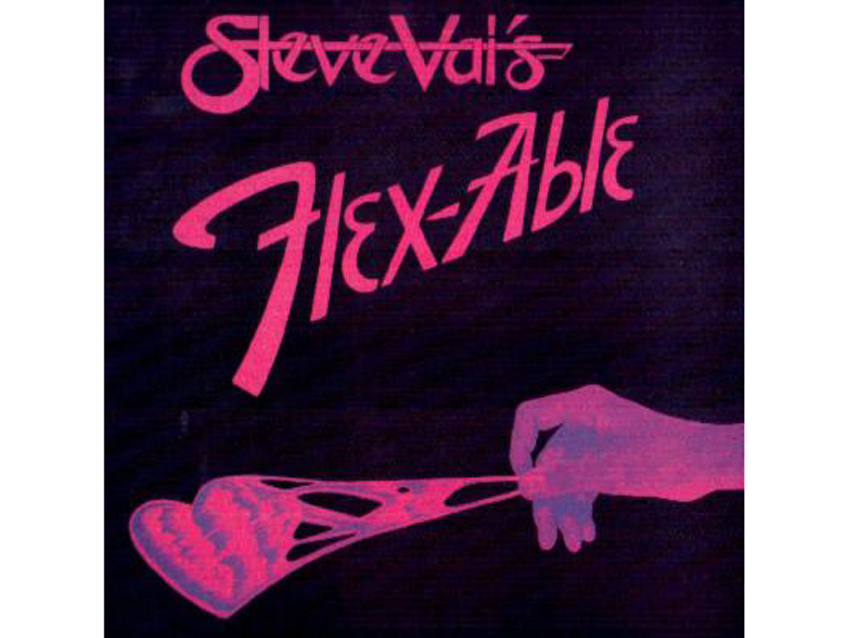
Flex-Able (1984)
“I loved the idea of recording. The idea of sound-on-sound-recording captured me as a young kid, and once I realized what it was I had an epiphany. Before I was even playing the guitar, I would create these lists of how I would record things and overdub them, like Led Zeppelin songs: ‘I could put this guitar on this track...’ and so on.
“When I moved out to California, the first thing I did when I had any scratch was buy a four-track machine, and I started recording and recording everything – television commercials, you name it. I was working with Frank, who showed me how to edit. Man, he was so great! I remember he recorded something, then he recorded something else and he cut the tape. I was like, ‘Oh my God, what is he doing? He’s cutting the tape!’
“But once he glued the two pieces together and played me what he did, I was in shock. Suddenly, just like that, I understood the whole editing process. I said to myself, ‘I have to do that.’ It was so funny, because I said to him, ‘Holy shit, that’s amazing!’ And he said, ‘Yeah, it makes every day like Christmas.’ [laughs]
“So I just recorded tons and tons of everything. I don’t think there was anything I didn’t document. And then I began to formulate these things into songs. Because I was so entrenched in Frank’s music, I really loved quirky, compositional humor. I had no aspirations for what it would be – it was really something for me and my friends to get a kick out of.
“I bought an eight-track Fostex machine, and that was like heaven. Eight tracks! I recorded the whole album, but I did it really sloppily. But I was also working with Frank, who was so precise, so I learned from that. I scratched the whole album and rerecorded everything. That was the beginning of my production life. I decided, This isn’t finished until I’ve done it to the best of my abilities.
“There’s so much on it, so much diversity. If I had a whole album of Attitude Songs, it would’ve sold millions of copies. But I had so many things that weren’t genre-specific, and I really liked that. I didn’t care what anybody would think because I never thought that anybody would hear it.
“Even so, I did my research and I found out that all I needed was a distributor, and I found one, Important Records, run by a man named Cliff Culteri. He was a fan. He started to distribute the record, which was unbelievable. Because I was with Frank, I sold 1000 copies. To get $4,000 in one lump sum was amazing to me. And it kept going, another thousand and another thousand. Once The Attitude Song hit Guitar Player, that was it – it went crazy.
“By the time I joined David Lee Roth’s band, CDs were available, and I was getting $7.50 on each one through my own label, Akashic Records. I wound up selling 400,000 units, so do the math. Incredible!
“It was a peculiar little record, and it was made with complete artistic freedom.”
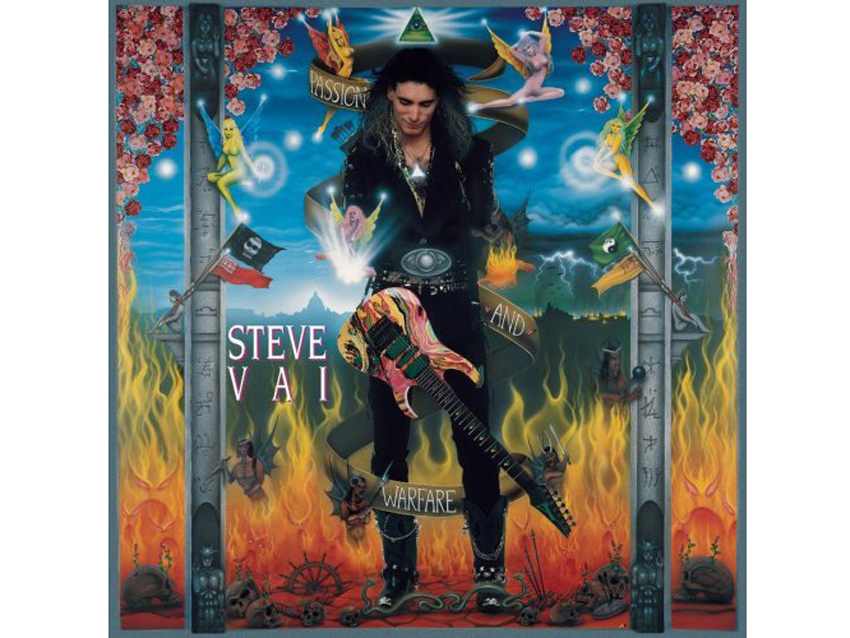
Passion And Warfare (1990)
“I bought a 24-track machine and got really serious. I started to record Passion And Warfare, but I had a lot of distractions – I joined Alcatrazz, and then I joined Dave’s band. I kept thinking, I better take this, I better take that… By the time I was in Dave’s band, Passion And Warfare was almost done, but it didn’t seem appropriate to release it while I was on tour with him.
“I waited a while. After I left Dave’s band, I thought, All right, all that rock-star stuff is done. I won’t make any more money, but I was OK with that. But it was with the same frame of mind that I recorded Flex-Able that I made Passion And Warfare, except the musical ideas were very different.
“I had so much fun working on the record, because again, I thought, Nobody’s ever going to hear it. I can do whatever I want. That’s all there was to it. I locked myself in the studio and made the record.
“I had a deal with Capitol, but when I brought them the record they said, ‘We don’t know what to do with this.’ They were going to put it out, but they weren’t going to give me the money they originally told me. So I stood my ground, same as before, and it was all because I was tutored by Frank. He was my mentor. He told me that most musicians get desperate, and that’s when they compromise. I wouldn’t do that. I wouldn’t compromise.
“Lo and behold, I got off of Capitol and I signed with Relativity, and I got a dream deal. The record went gold in a week. Another extraordinary story.”
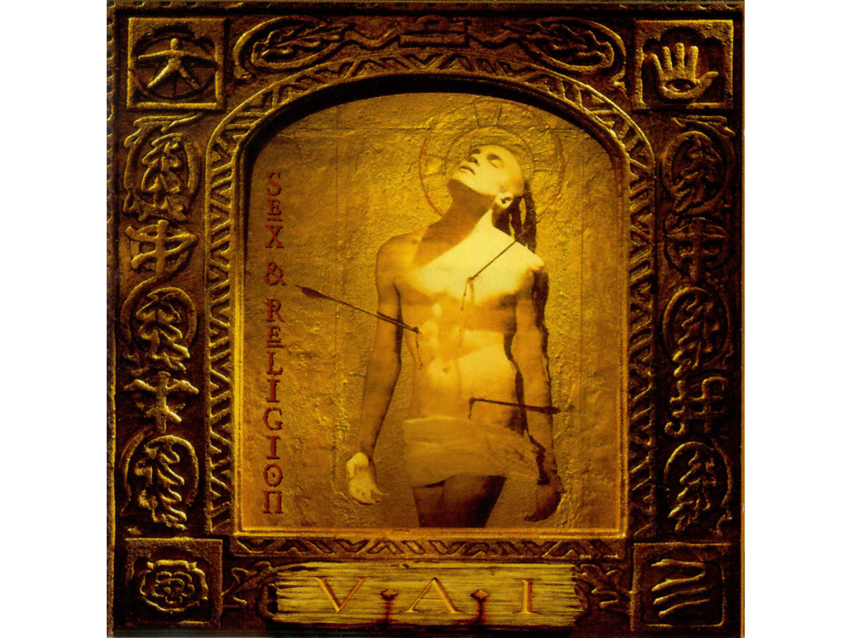
Sex & Religion (1993)
“I couldn’t figure out how to tour with Passion And Warfare. I wanted a frontman. I didn’t want to be the guy in front playing instrumental music – I mean, I dreamed of that, but I didn’t think it would work. So I went through the Whitesnake phase, and when I got done with that I got tied up with a lot of other projects that I probably shouldn’t have.
“But then I thought, OK, people are buying my music. I’d better step it up and get professional. I hired a management firm that didn’t understand me, really, and I decided to make a record with a singer, and I found one, Devin Townsend. He was unbelievable, with such a unique voice.
“I really loved what Devin could do, but he was probably an acquired taste, and since this was in the early ‘90s, it wasn’t what people were interested in. The grunge thing was hitting. I wanted to make a more commercial record with a band and potential radio songs. I wanted it to have some twists in it but not be as esoteric as Passion And Warfare and Flex-Able, so I made Sex & Religion.
“It just didn’t work for me. Any band is usually something where a bunch of guys get together and contribute with unconditional acceptance. But I couldn’t do that. And with somebody like Devin, who is so unbelievably creative, he was like a colorful bird trapped in a cage with me.
“The album wasn’t accepted terribly well. It was too aggressive to a lot of conventional ears. The heavy metal thing didn’t hit yet – it was all grunge – and the record was very musical; it had a lot of my quirky conceptual qualities. But I thought it was a great album. The only complaint I have is that I don’t like a lot of the sounds because of some of the gear I was using.
“I realized that I compromised my true musical desires, my inner ear, to try and make something more commercial. Not totally commercial, but I was pressured by record companies and managers, radio and all the shit that goes along with trying to sustain a pop-type career.”
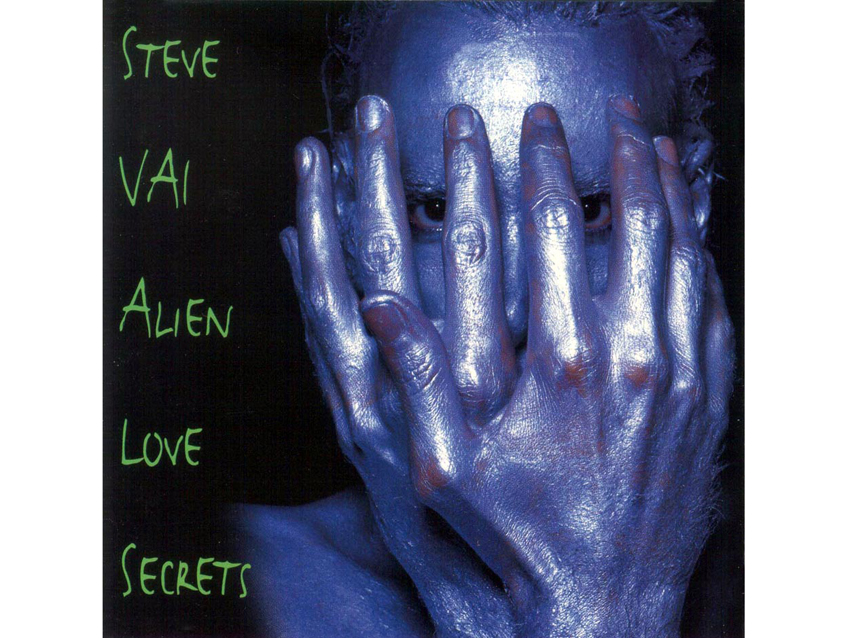
Alien Love Secrets (1995)
“At this point, I realized that I needed to be independent. I had just had it with trying to juggle a band. I decided that I worked best when I do whatever I want, and I needed to release something that was a true expression of the guitar.
“I went jogging in the hills, and I said, ‘You’re going to make a record that’s stripped-down; it’ll be a guitar, bass and drums-only EP, and then you’ll make another magnum opus.’
“So I wrote and recorded Alien Love Secrets in four weeks, which is unheard of for me. I just did it, and it’s one of my favorite records. It’s stripped-down, in your face, it’s not over-produced, and it’s all beautiful guitar songs.”
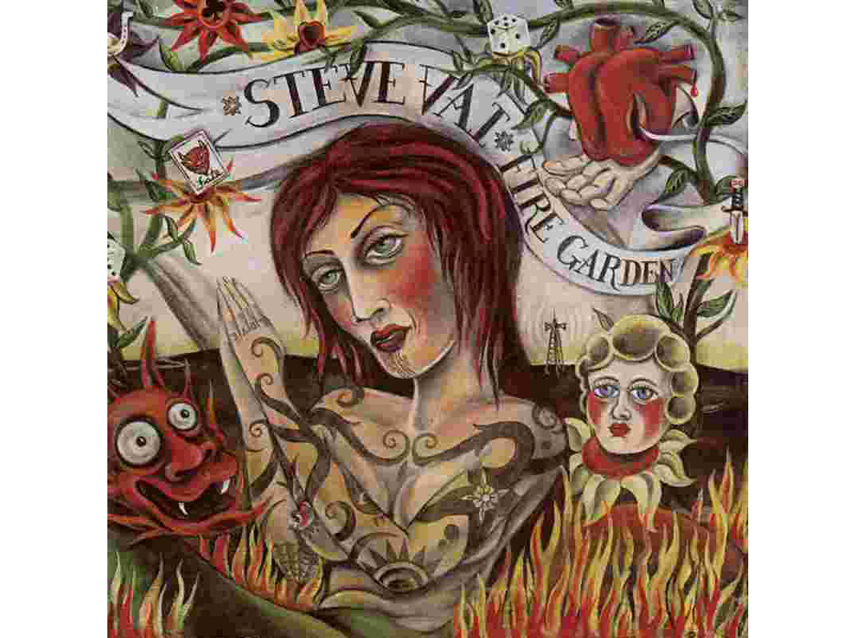
Fire Garden (1996)
“After Alien Love Secrets, I hunkered down and went to work on Fire Garden. I really wanted to sing. I always loved singing, and I like the sound of my voice. I thought that people would have to get used to it or they’d hate it because they were expecting something else. But you know, you can’t function like that. You get trapped in your own prison cell.
“I thought, Why don’t I have some songs where I can sing live, and then I can have some of the heavy stuff? I did the Fire Garden Suite, which is one of my fans’ favorite pieces of music – it’s very compositional and interesting. But I also have those vocal songs, which I really enjoyed doing.
“It was very well received. It didn’t sell as much as some of my other records because there is no radio outlet for me. Also, there’s a natural decline in record sales for all artists. You have bombs here and there, but whatever. It was a fabulous experience. I put a wonderful band together, I toured with Mike Mangini, and I had a great time.”
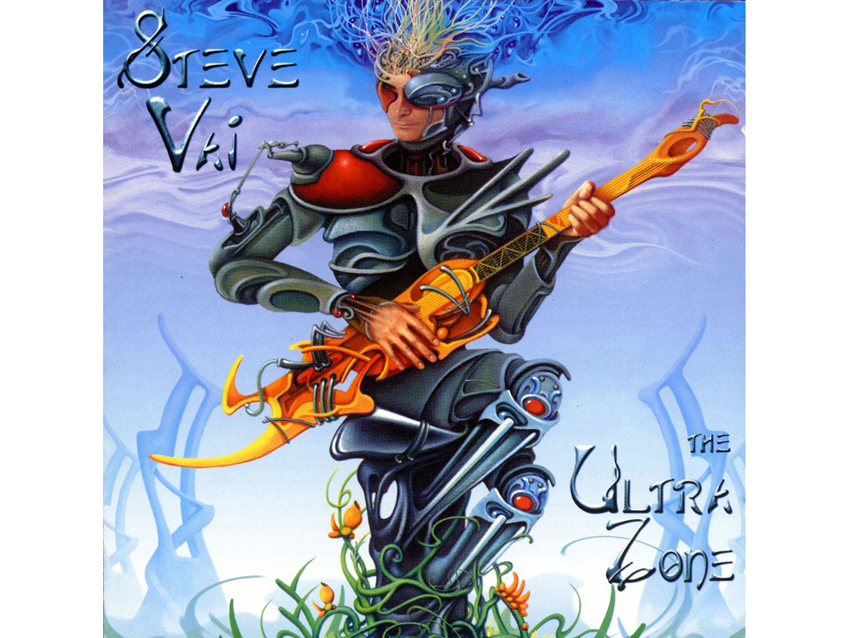
The Ultra Zone (1999)
“This was such a great, fun project. There’s so much freedom when you let go, when you stop thinking about people’s expectations, and you say, ‘OK, what do I really want?’ So that’s what I did on this album. It might have been a little more of the same in some ways, but it was more evolved simply because we evolve.
“I enjoyed doing all of the in-between projects, like the live records and compilations that I started to put together. All this time, I was still with Sony, and they were doing a great job with getting the records out there.
“Plus, I had gotten my touring chops together. When I went out on the road with Sex & Religion, I lost a fortune. We sold out every place, but I was spending way too much. So when I got with [former manager] Ruta [Sepetys], she set it straight. She encouraged me every step of the way to just make the music that I wanted to play, because I’d never have that chance again. Don’t compromise at all. That’s the way that I felt, but it really helped to have somebody saying that to me every day. Ruta was an angel.”
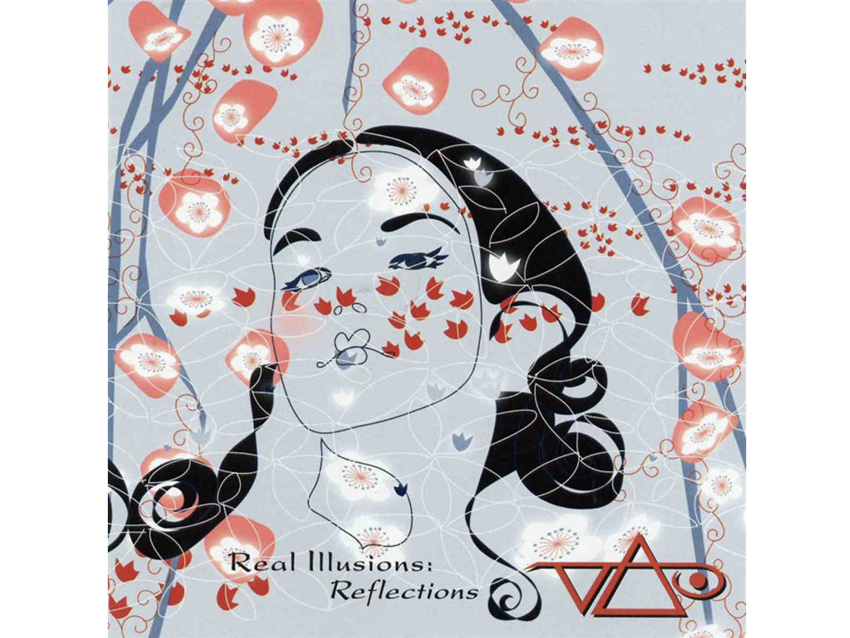
Real Illusions: Reflections (2005)
“When it came time to do Real Illusions, with all of this beautiful encouragement from Ruta and the sense of freedom I felt that I could make a living doing this, I kind of decided to test my audience to see how many demands I could put on them.
“I wanted to do something very different: a concept record. I had this idea, this story… Everybody has this, a moment of clarity. Time stops, and you can even remember your environment, what it looked like, smelled like, the colors, everything. We all have those. They’re elusive, but they do happen.
“So I set forth and outlined the whole story for Real Illusions, and I started to create that record. It was the first movement in this large-scale concept, and it unfolded beautifully.
“The fans that really get you, they stay with you. Real Illusions is one of their favorite records. Passion And Warfare is a favorite for a lot of people because it might have been the first one that they knew, but the people who really get what you’re doing, every next record is their favorite.
“You can only have that when you do what really matters to you and what comes most naturally to you.”
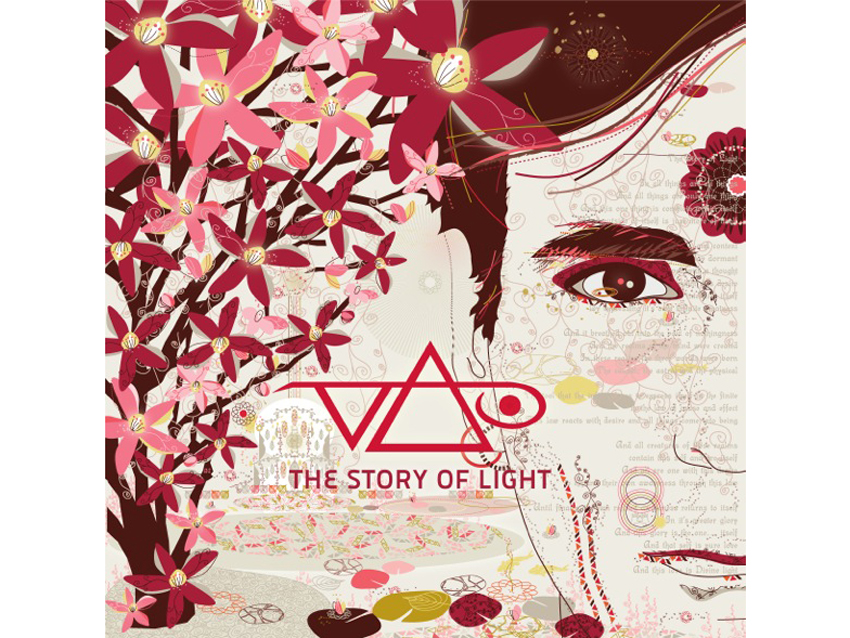
The Story Of Light (2012)
“Like I said before, when we go into our creative element, we gravitate to the things that are the most important and the most interesting to us. I’ve always taken the esoteric, spiritual route, and it filtered my desires and my understandings and my seeking nature through my music.
“Some people are interested in sex or love or fast cars or whatever, and if that’s important to them, that’s fine. Other people want more of an understanding of reality. In the whole scheme of the Real Illusions trilogy, The Story Of Light is part of it. So in talking about The Story Of Light and the spiritual concepts of it, I’d have to include the Real Illusions trilogy.
“When I sat down to make the album, I took the same approach: What do you want to do? What do you like the most for this? It doesn’t encompass my entire desire for creative output, because I have released orchestra records, and I haven’t even brought up the Sound Theories releases, because we’re talking about studio albums.
“With the song The Story Of Light, it was another one of those moments of clarity that artists have when they go, ‘Ahhh! I know what I want to do.’ And I wasn’t thinking about anything else. I wasn’t thinking, Is radio going to like this? Are fans going to like this? The fans will like what is most inspiring to you. That’s why Bruce Springsteen and David Bowie and Alice Cooper and Led Zeppelin were so successful. It just so happens that the things they were most excited about were more accessible than the kinds of things that I’m excited about. [laughs]
“If you listen to Charlie Parker, he was totally engrossed in what he was doing at his potential. You can’t find your potential unless you’re really excited about something. That’s your armor through the storms. That’s what you need to create, and you can’t do that if you let distractions get in the way. And when I say ‘distractions,’ I mean ‘my noise.’ You have to get away from that if you’re going to create what you want to your fullest potential.”